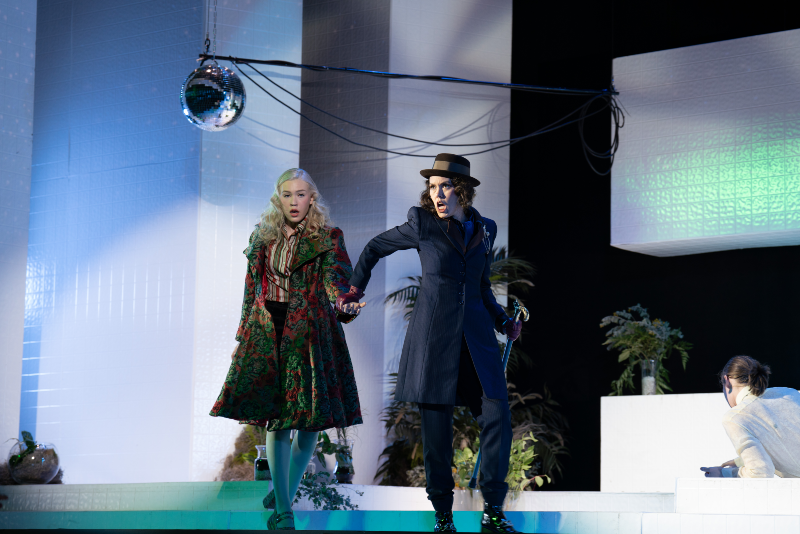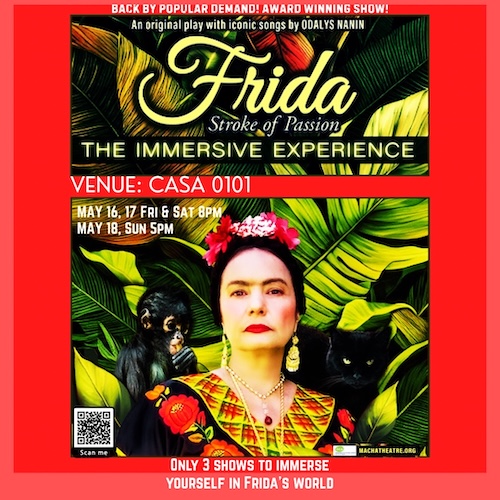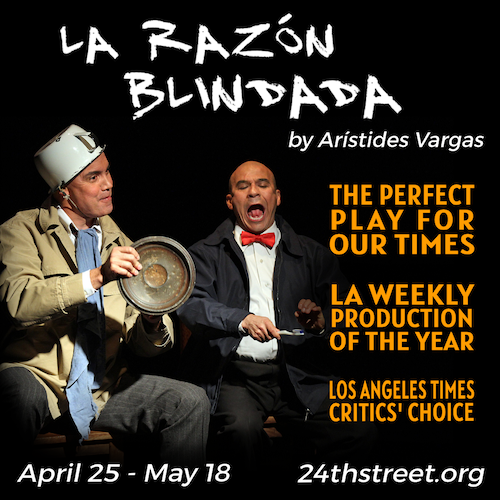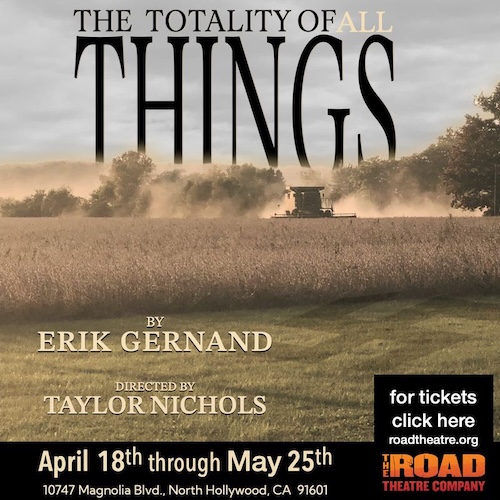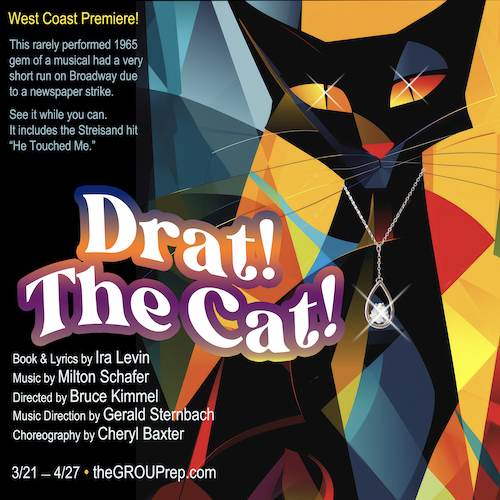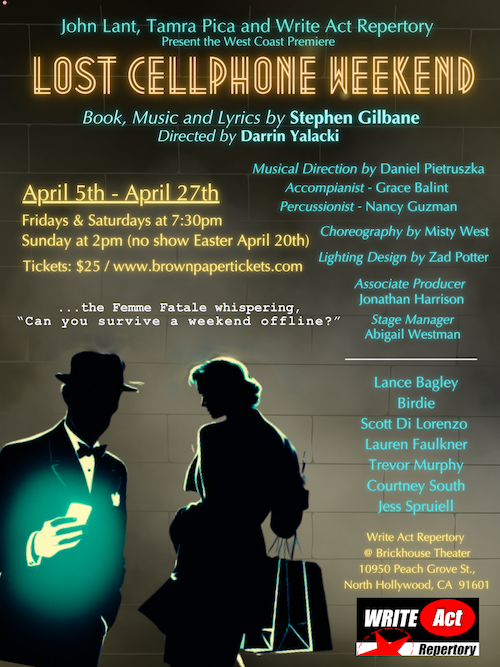The Romance of the Rose
Reviewed by V Cate
Long Beach Opera
Thru February 25
On the heels of Valentine’s Day, Long Beach Opera offers a celebration of love in which a dreamer and a lover are transported to a dreamscape where a rose becomes the unlikely object of undying affection. Pulitzer Prize finalist Kate Soper’s new opera is universal in its subject matter, and daring in its execution. But a combination of pretentiousness and novelty without dramatic or musical grounding might give a false impression of quality.
Perhaps a libretto’s music itself doesn’t have to be memorable — or even pleasant — if the artistic intent is solid and the substance comes from within different aspects of the piece. But the meandering story — which hacks up and spits out Guillaume de Lorris & Jean de Meun’s medieval poem Le Roman de la Rose —traffics in easy platitudes without saying very much that is cohesive or insightful about love.
Let’s consider composer/librettist Soper’s own words:
“‘All the arts of love are here enclosed.’ So promises the unnamed protagonist of the 13th-century epic Le Roman de la Rose. Plenty of love-talk indeed follows — but so do hundreds of lines about gender, astrology, fashion, war, law, God, the nature of language, and the concept of free will. What are we supposed to take from such profligate subject-hopping in an ostensible romance? Maybe the notion that ‘love’ is a good receptacle of the messy complexity of the human condition in general. As, perhaps, is opera.”
But the original poem was not a receptacle. It was so successful and timeless because of its luscious and romantic philosophical meditation on love. The poem may have been long, but the main character went on a clear journey, learning and musing and making capable decisions along the way.
In Soper’s Rose, the main character of the poem is now two, represented by the Dreamer (Broadway veteran Lucas Steel) and the Lover (divine mezzo-soprano Tivoli Trolear). The Dreamer isn’t entirely necessary as written; he could serve as a guide, as a distraction, as a narrator, or as a stronger love interest, but dramatically mostly serves as a plot device, and a self-satisfied one.
The poem’s dozens of allegorical characters have, for the stage, been condensed down to only a handful. The God of Love (Phillip Bullock) holds court over Lady Reason (Anna Schubert), Shame (Laurel Irene), Idleness (Tiffany Towsend), and Pleasure (Bernardo Bermudez) in a locus amoenus something like a modern take on the Elysian Fields with a disco ball. The Dreamer and Lover interact with each in airy exchanges.
The performers are clearly capable across the board, but Idleness and Pleasure aren’t given much substantive work to do. Meanwhile, Shame’s musical track could — in kindness — be called brave, or — in honesty — be called an affront to the senses. The impulse to compose a character’s musicality almost entirely with discordant shrillness and screeching is at least interesting, but the unorthodox approach wears out its welcome fast. Though, the stylistic autotune that accompanies her and Lady Reason’s vocals provide a much welcomed auditory theme — the most concrete in a chaotic soundscape.
Production design elements strangely clash. Molly Irelan’s larger-than-life costume design is fantastical and bright, but seems to have been developed entirely separately from Prairie T. Trivuth’s starkly Instagramable scenic design, making a confused visual world rather than a cohesive one. Pablo Santiago’s lighting is oddly basic in the first half of the show, though the second act delivers some playfulness and seduction. The peak of all three designers’ work is when they all work together harmoniously, as Shame in a glistening suit of armor peers into Narcissus’s pool.
In the original poem, the Narcissus myth is referenced as a contextual warning, even as the narrator espies a beautiful rose bush. The invocation of Narcissus has an entirely different context for modern audiences, as narcissism in relationships is a prevailing theme on social media. Beware narcissism, the opera warns, referencing reflections (though without supporting the omen in any on-stage action).
Ultimately, the opera does remain true to the original poem’s message: humans have no power of choice in matters of love. As the God of Love sank an arrow into Narcissus himself, so he sank one into the narrator/lover, and so he sinks his arrows into us all as the whim strikes. Loving a rose makes as much sense as loving anything of beauty. Thus, even in such a messy wonderland as this onstage musing, we can grapple with our own relationships with shame, reason, and love.
Long Beach Opera at Warner Grand Theatre, 478 W 6th St, San Pedro CA 90731; Sun., 7:30 pm; https://longbeachopera.org; Running time: 2 hours 25 minutes with one intermission.


